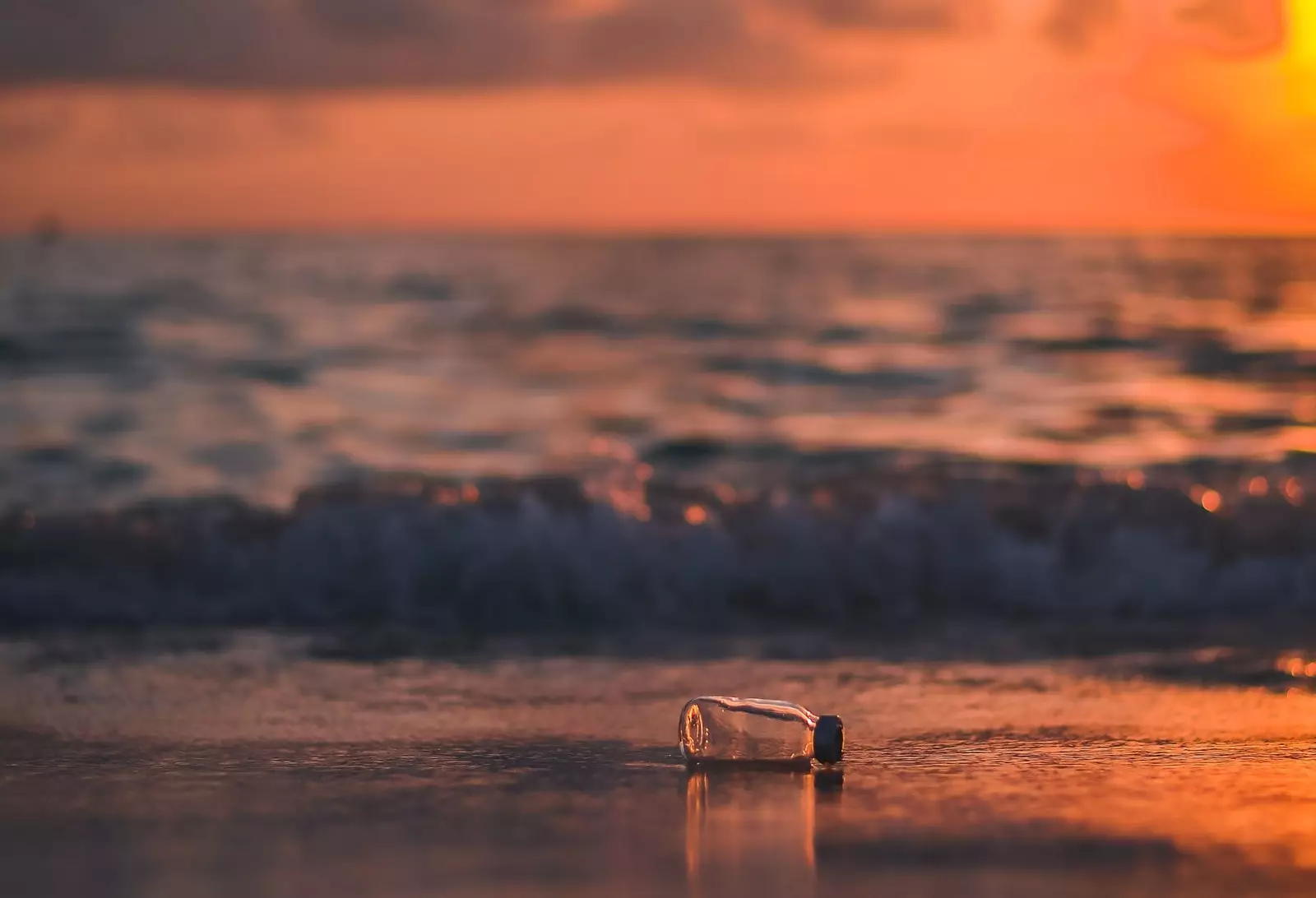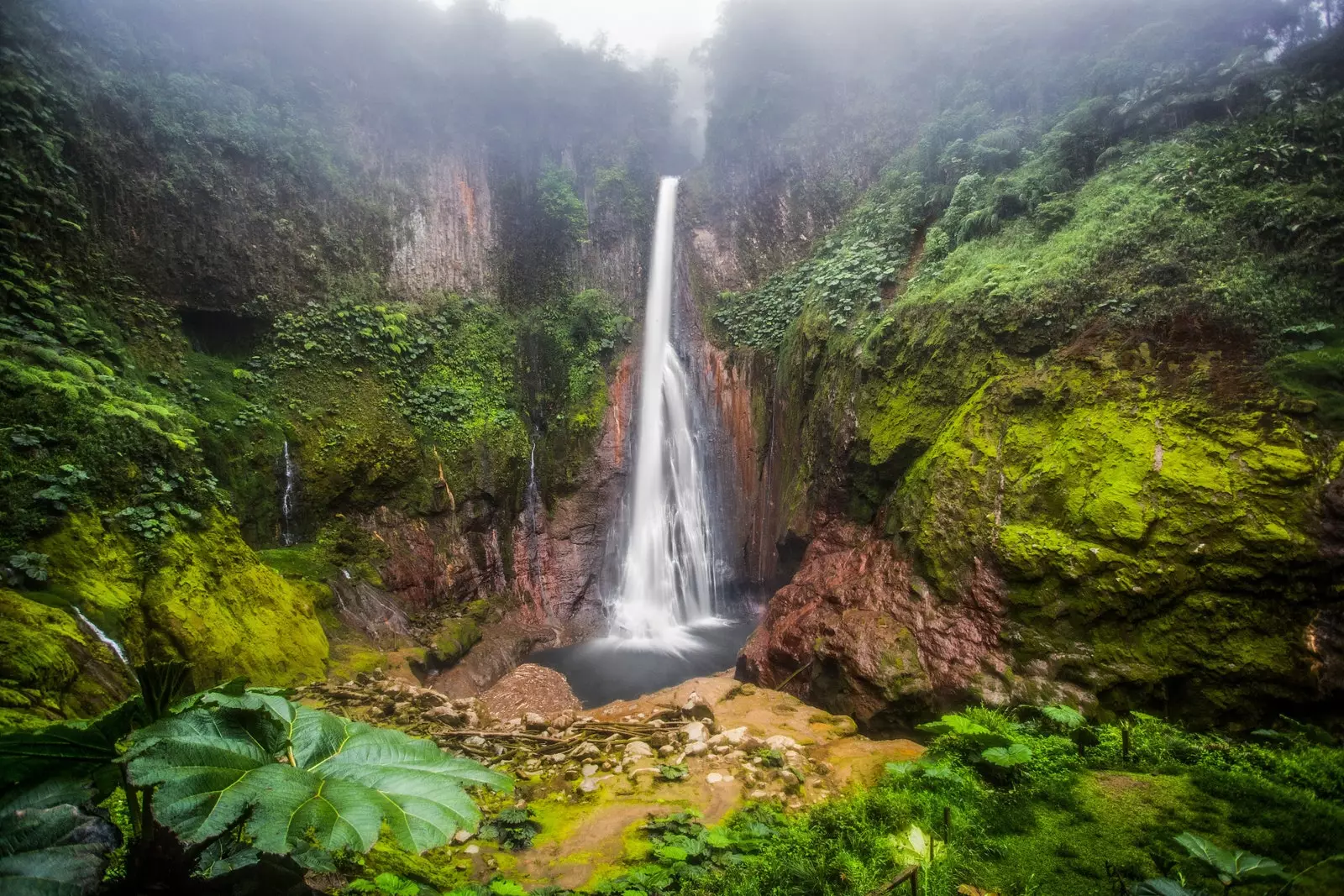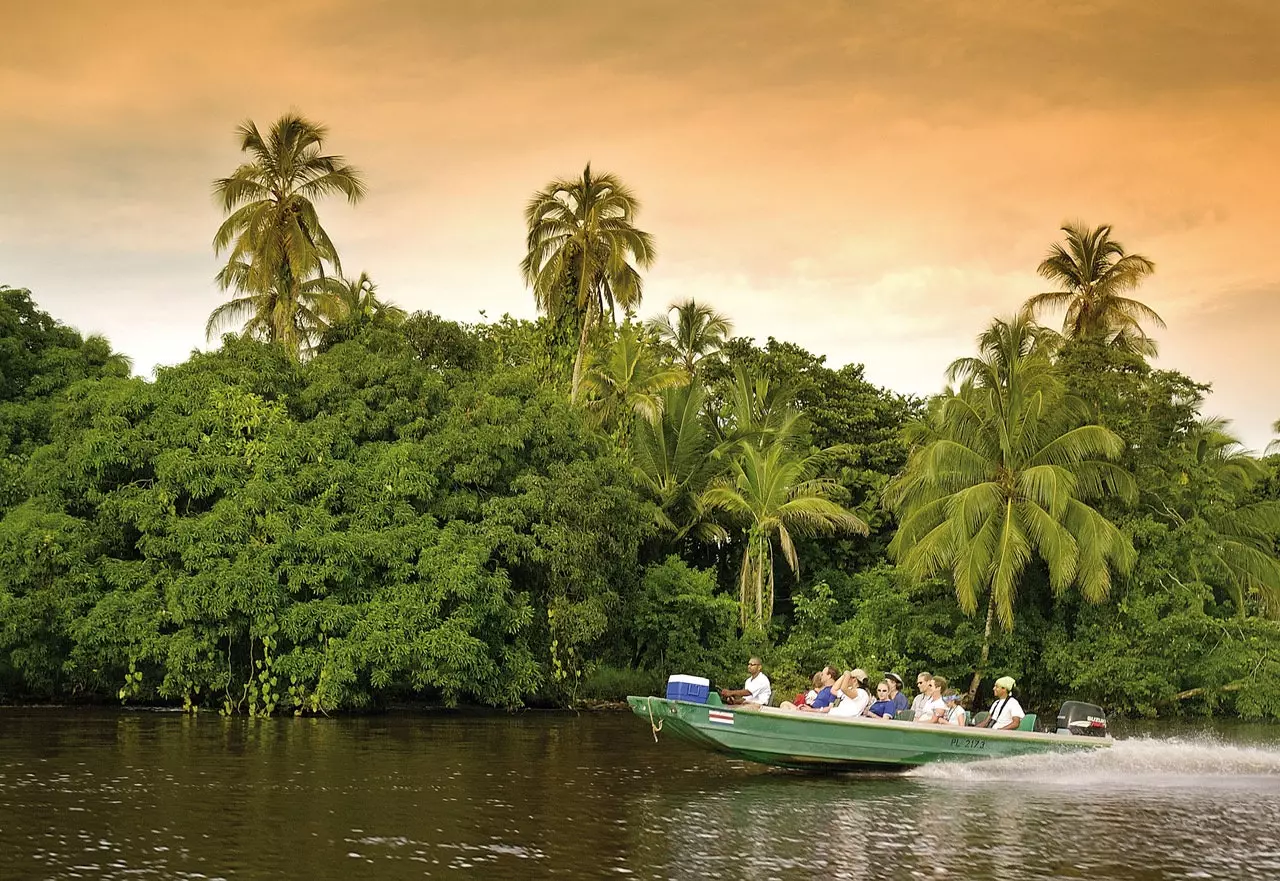
Measures are necessary to put an end to this type of images.
Costa Rica ban single-use plastic in National Parks, Biological Reserves and National Monuments. That's how resounding and effective (hopefully also effective) is the measure that will come into force on February 25 and that is part of the National Strategy with which the Central American country aims to solve the pollution problem generated by plastics in watersheds of the metropolitan area and in the Costa Rican Pacific.
In 2018, Costa Rica generated 1,462,397 tons of waste, according to the Ministry of Health. Data that present a pleasant improvement with respect to the two previous years, because The country of Pura Vida has set out to do just that, to be much purer... and the sooner the better, even though its National Decarbonization Plan –in which this new initiative is framed– has 2050 as the deadline for achieve a green economy with zero net emissions.

Catarata del Toro, a private ecological reserve in Costa Rica.
Who needs disposable cutlery or crockery in the Tortuguero National Park when what you come to this natural paradise to see the turtles nest in the Caribbean ? Nor in the dry and tropical forests of the Cabo Blanco Absolute Reserve will you need plastic straws to drink their natural pools home to many birds in danger of extinction. And next to the National Theater of Costa Rica there are dozens of restaurants where you can try typical Costa Rican cuisine without having to introduce fast food served in containers that are not very environmentally friendly in this Renaissance facade National Monument.
Make visitors aware of importance of replacing single-use plastics with renewable and compostable alternatives This is the objective of this restrictive guideline that has been supported by the United Nations Development Program (UNDP). We must not forget that, as the UN itself warns, more than eight million tons of plastic end up in the oceans, causing serious consequences on marine flora and fauna, fishing and tourism.
Put this way, even though it is a quantifiable figure, it seems that one is not able to get a concrete idea of the serious problem that we are facing, but a report from the World Economic Forum and the Ellen MacArthur Foundation provides us with much more qualifying data, as it is as alarming as it is terrifying: “By 2050 there will be more plastic than fish in the oceans, unless people stop using single-use items made from this material, such as bags and bottles.”

Tortuguero National Park, Costa Rica.
Costa Rica is not only an advanced country when it comes to adopting commitments to change (it has been generating 98% renewable electricity for six years now) or to take forceful measures to safeguard the environment in its territory, but it is also recognized internationally for this work in favor of sustainability.
Last year won the UN Global Climate Action Award for its Payments for Environmental Services Program (PSA), a financial mechanism –the first of its kind in the country and the region– that promotes the conservation of forest ecosystems encouraging land owners to protect the forest. From 1997 to 2019 they are already more than 18,000 families who have benefited from this economic instrument (2,788 women, 6,888 men, 19 indigenous communities and 8,712 family associations).
Also, the Global Council for Sustainable Tourism granted worldwide recognition to the Tourism Sustainability Certificate (CST) of the Costa Rican Tourism Institute, which some 400 tourism companies in the country already boast of. Because Costa Rica has long understood that the tourism of the future will be sustainable or it will not be.
